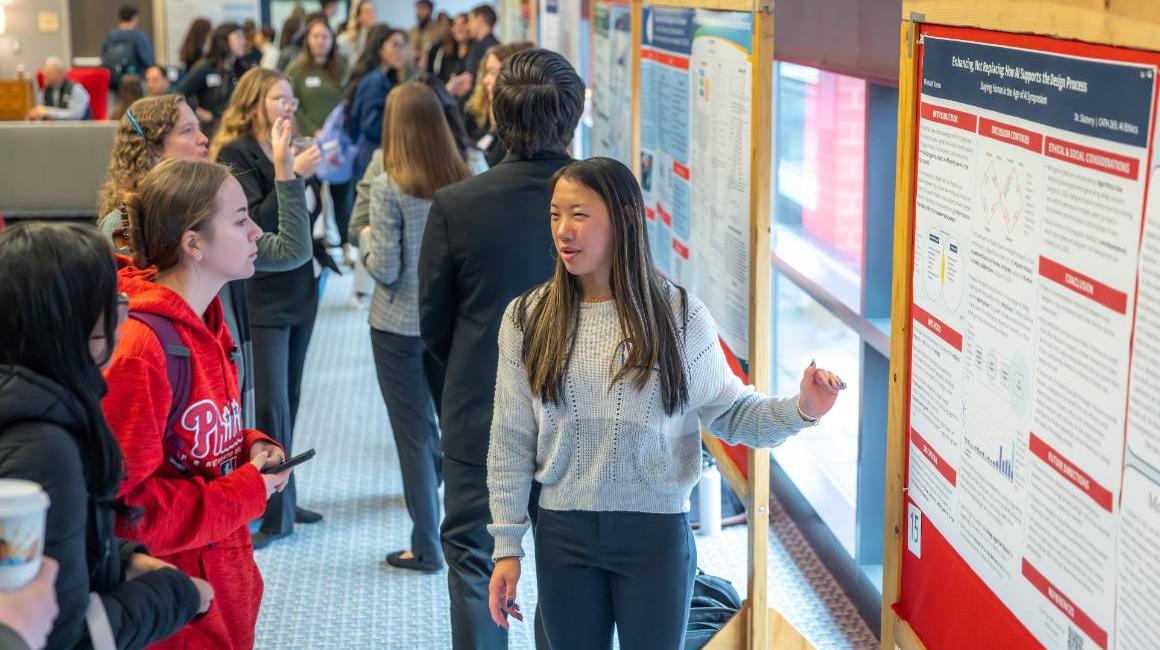AI and Digital Ethics Micro-credential
The Grefenstette Center for Ethics in Science, Technology, and Law is proud to offer the AI & Digital Ethics Micro-credential. This three-course micro-credential program is open to all undergraduate, graduate, and continuing education students. The micro-credential is comprised of two required courses - offered each semester by the Grefenstette Center - and a selection of electives that count for the third. This program can be completed fully asynchronously online, allowing people from all walks of life to gain a credential that can be applied in professional and educational contexts.
Required Courses
- GREF 210/510: Artificial Intelligence Ethics (offered every Fall and Spring)
- GREF 250/550: AI, Society, and Power (offered every Fall and Spring)
Elective Courses
- GREF 230/530: Artificial Intelligence in Healthcare (offered every Fall and Spring)
- CATH 365/GREF 365: Big Bang to AI: Science and the Catholic Worldview (offered irregularly)
- MDIA 325W/GREF 325: Ethical Use of AI in Today's Media (offered every Spring)
Why pursue an AI & Digital Ethics Micro-credential?
This AI & Digital Ethics Micro-credential offers a 3-course, 9-credit sequence that will give you the tools to successfully analyze, interrogate, discuss, and utilize ethical approaches to emerging digital technologies, focusing on artificial intelligence (AI) and generative AI. This micro-credential is for professionals seeking to gain competencies on the ethics and responsible use of AI in their organizations, graduate students who want to add a valuable competency to their resume, and undergraduate students who want to gain insight into the responsible and ethical use of AI and emerging technologies before entering the workplace.
This micro-credential is offered by the Grefenstette Center for Ethics in Science, Technology, and Law at Duquesne University. The Grefenstette Center is committed to interrogating the ethical uses of modern technology with a deep respect for the ethical tradition of the Catholic faith upon which Duquesne was founded. The Grefenstette Center offers a variety of programs, courses and partnerships for students and the general public throughout the Pittsburgh area, balancing its work with national policy initiatives and international religious conversations. The Grefenstette Center is a member of the National AI Safety Institute Consortium at NIST and a member of the AI Research Group for the Vatican Dicastery for Culture and Education.
Learning Outcomes
- Think deeply and critically about new ethical issues in AI and emerging technology
- Speak intelligently about a wide variety of ethical issues in the area of AI and generative AI
- Understand the risks of realities of the pursuit of AGI at a global and enterprise level
- Distinguish between a variety of ethical and moral approaches to applications of AI in business, healthcare, and other industries, and recognize arguments made by others
- Analyze the effects of technology, and AI in particular, on social issues such as sustainability, education, bias, politics, and military power
- Reflect on your own personal moral growth as it relates to your daily use of all forms of technology, and how this relates to your moral formation in general.
- Connect these moral approaches to religious traditions, with unique insight from the Catholic tradition in conversation with other Christian and non-Christian traditions.
Learn more about the Grefenstette Center for Ethics.
Course Descriptions
This course is required for the AI & Digital Ethics Micro-credential.
This course is an elective for the AI & Digital Ethics Micro-credential.
This course is required for the AI & Digital Ethics Micro-credential.
This course is an elective for the AI & Digital Ethics Microcredential.


